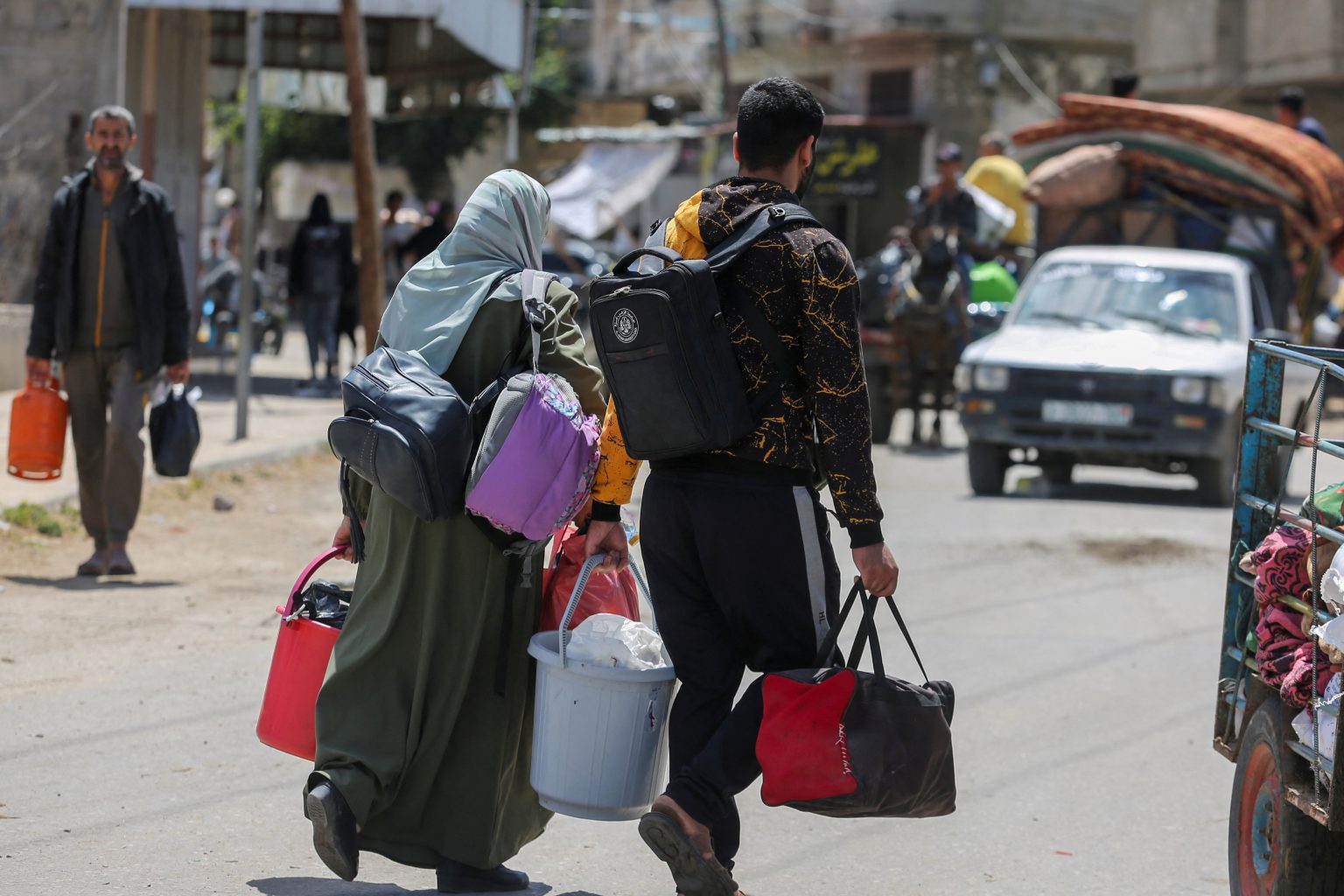Fears are growing of a full-blown assault in Rafah, long threatened by Israel, against holdouts of Palestinian militant group Hamas as ceasefire talks stall. Israel’s military carried out airstrikes in Rafah on Monday, residents said, hours after Israel told Palestinians to evacuate parts of the southern Gaza city where more than a million people uprooted by the war have been sheltering. Fears are growing of a full-blown assault in Rafah, long threatened by Israel, against holdouts of the Palestinian militant group Hamas as ceasefire talks in Cairo stall. There was no immediate comment from Israel, which Hamas-affiliated Al-Aqsa TV said had targeted areas in eastern Rafah near neighbourhoods given evacuation orders. Instructed by Arabic text messages, phone calls, and flyers to move to what the Israeli military called an “expanded humanitarian zone” 20 km (7 miles) away, some Palestinian families began trundling away under chilly spring rain. Some piled children and possessions onto donkey carts, while others left by pick-up or on foot through muddy streets. “It has been raining heavily and we don’t know where to go. I have been worried that this day may come, I have now to see where I can take my family,” one refugee, Abu Raed, told Reuters via a chat app. A senior Hamas official said the evacuation order was a “dangerous escalation” that would have consequences. “The U.S. administration, alongside the occupation, bears responsibility for this terrorism,” the official, Sami Abu Zuhri, told Reuters, referring to Israel’s alliance with Washington. Hamas said later in a statement that any offensive in Rafah would not be a “picnic” for Israeli forces and said it was fully prepared to defend Palestinians there. Aid agencies have warned that the evacuation order will lead to an even worse humanitarian disaster in the crowded coastal enclave of 2.3 million people reeling from seven months of war. “Forcing over a million displaced Palestinians from Rafah to evacuate without a safe destination is not only unlawful but would lead to catastrophic consequences,” British charity ActionAid said.



